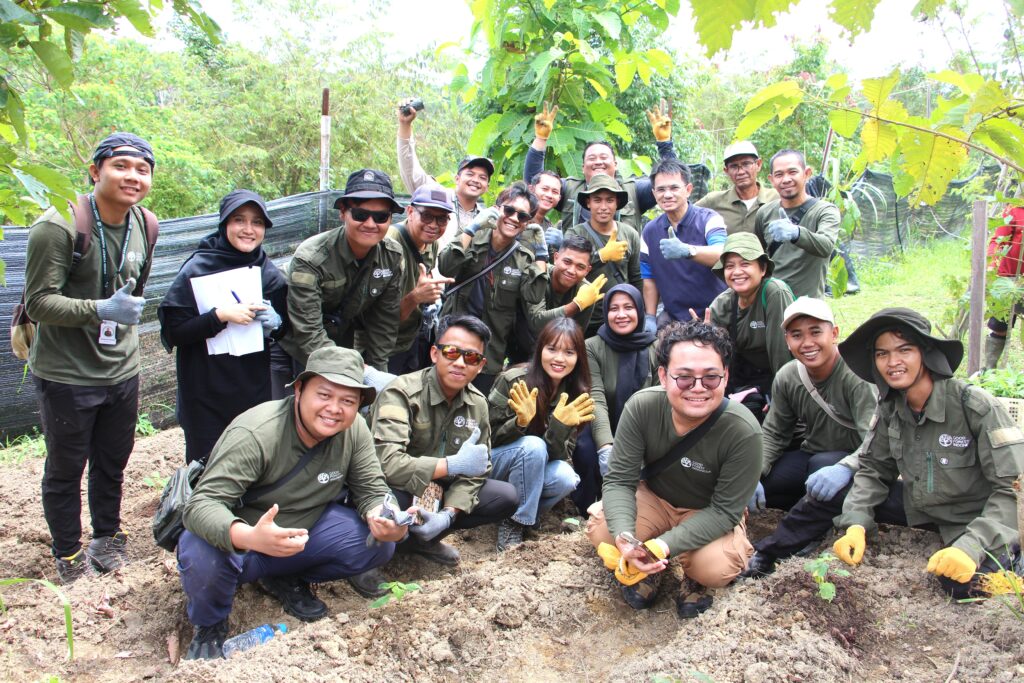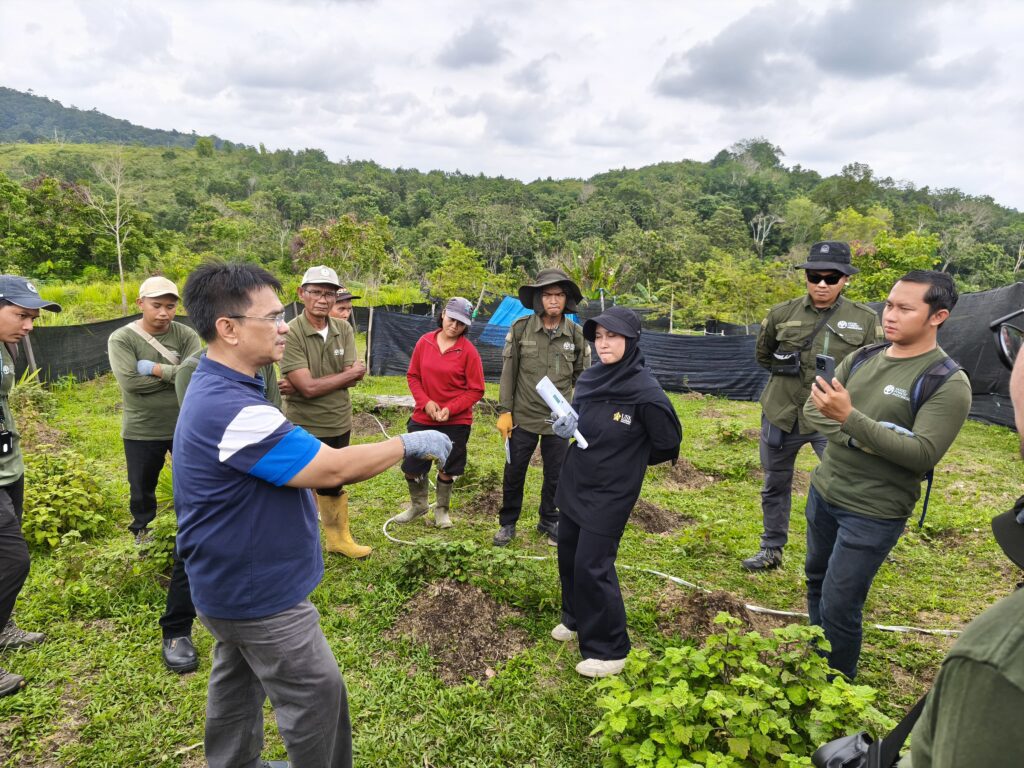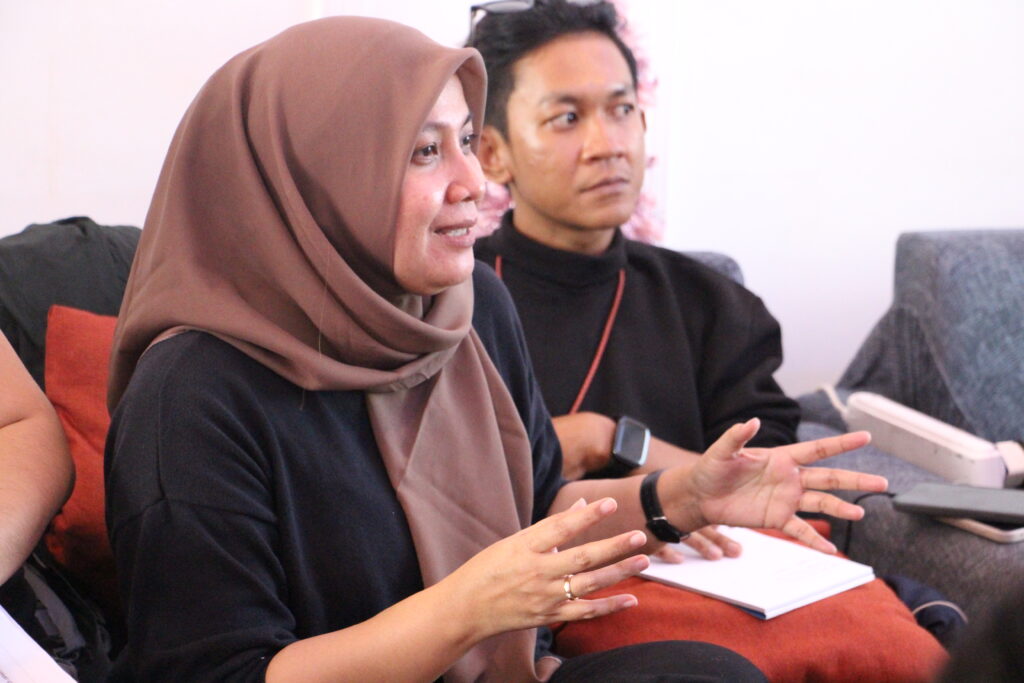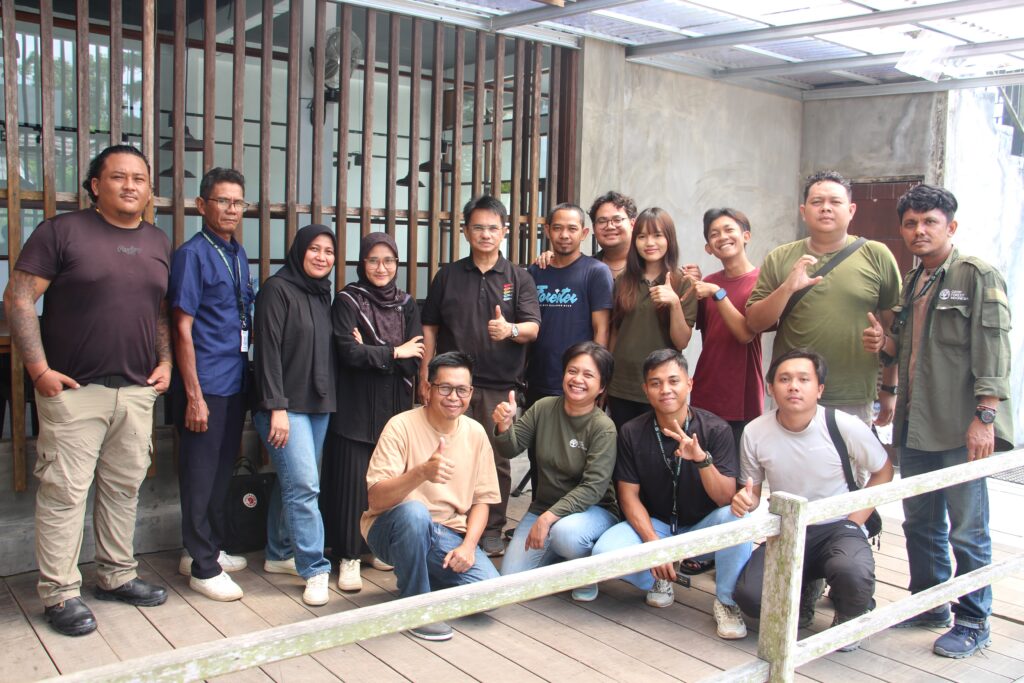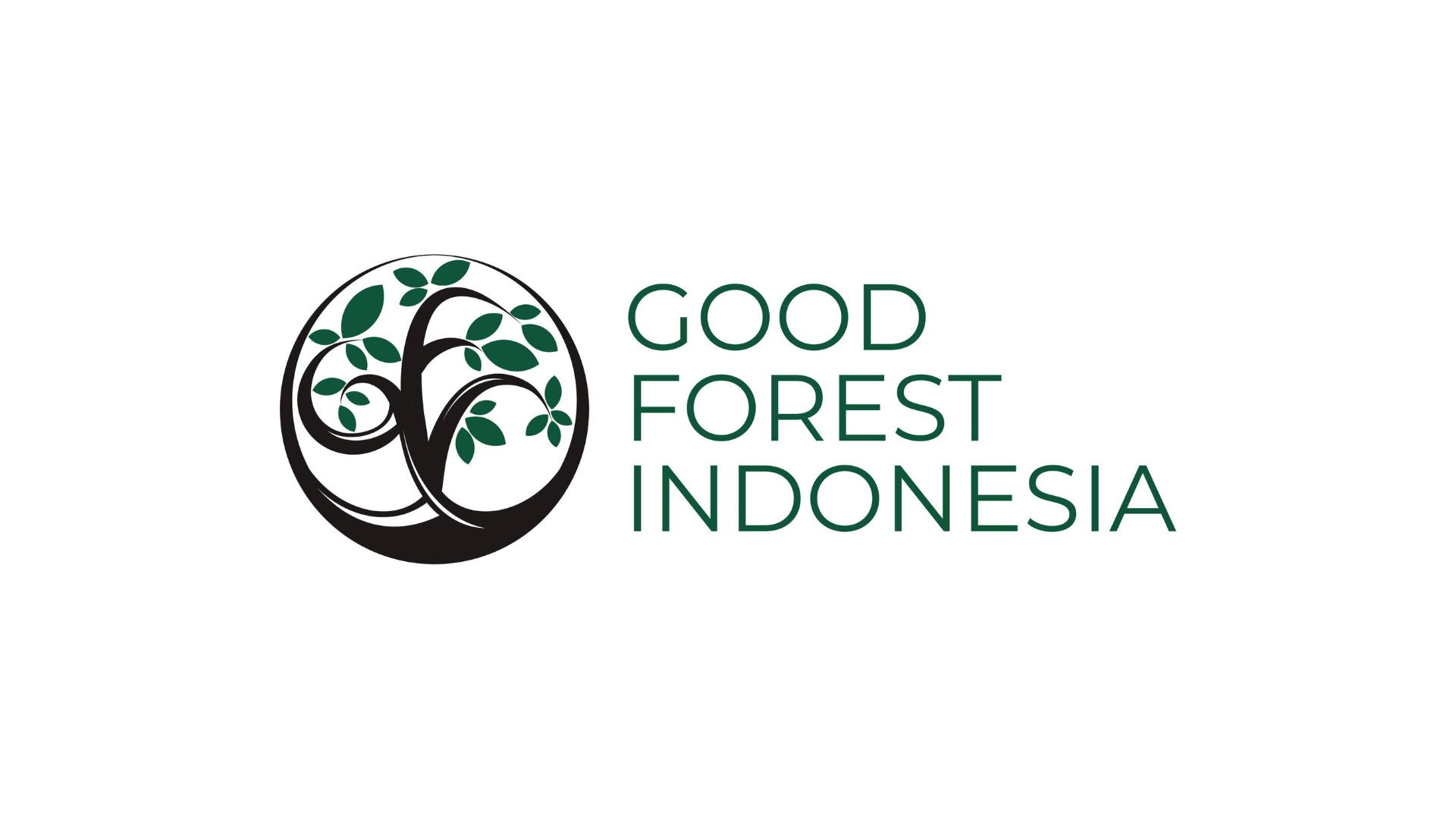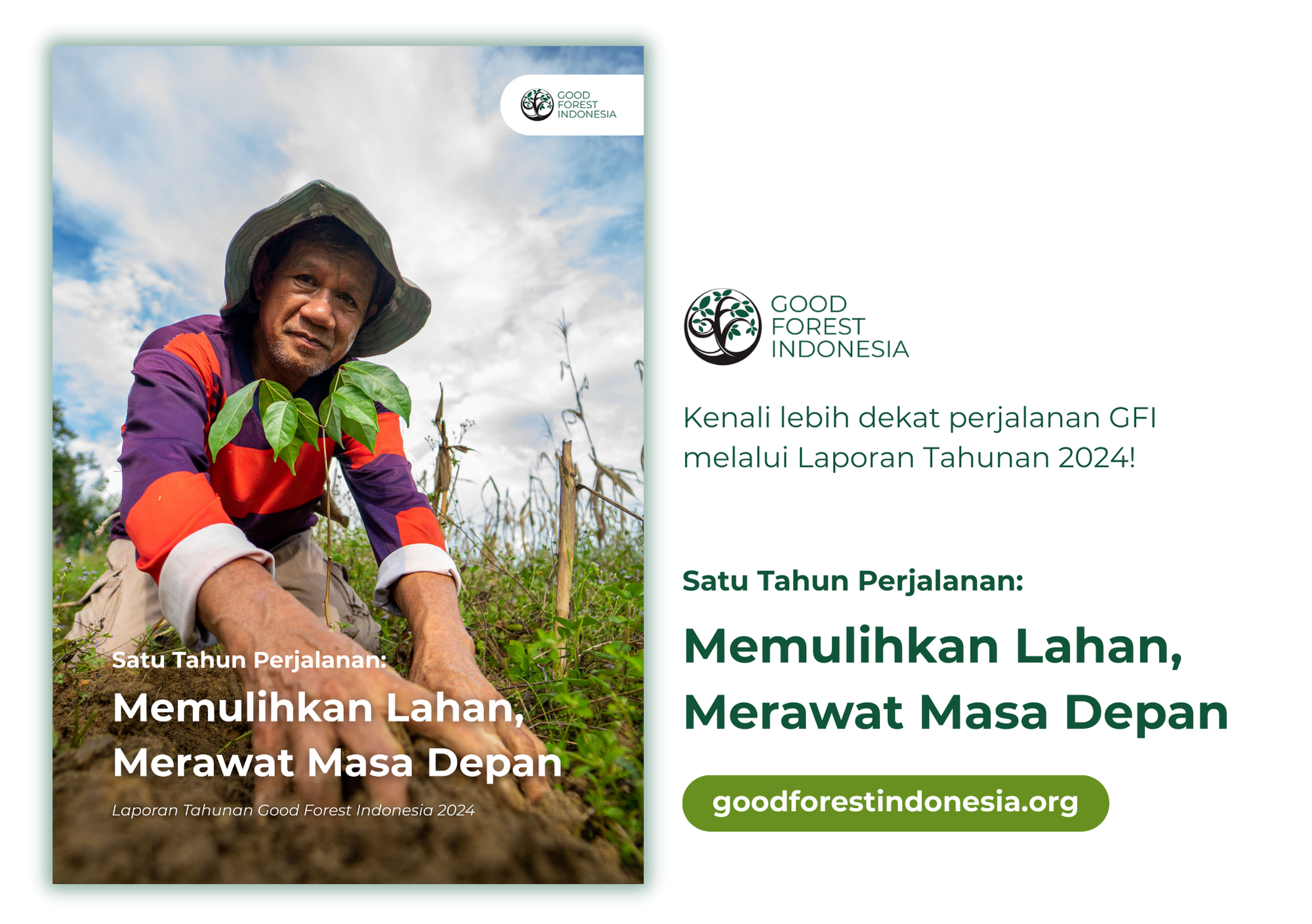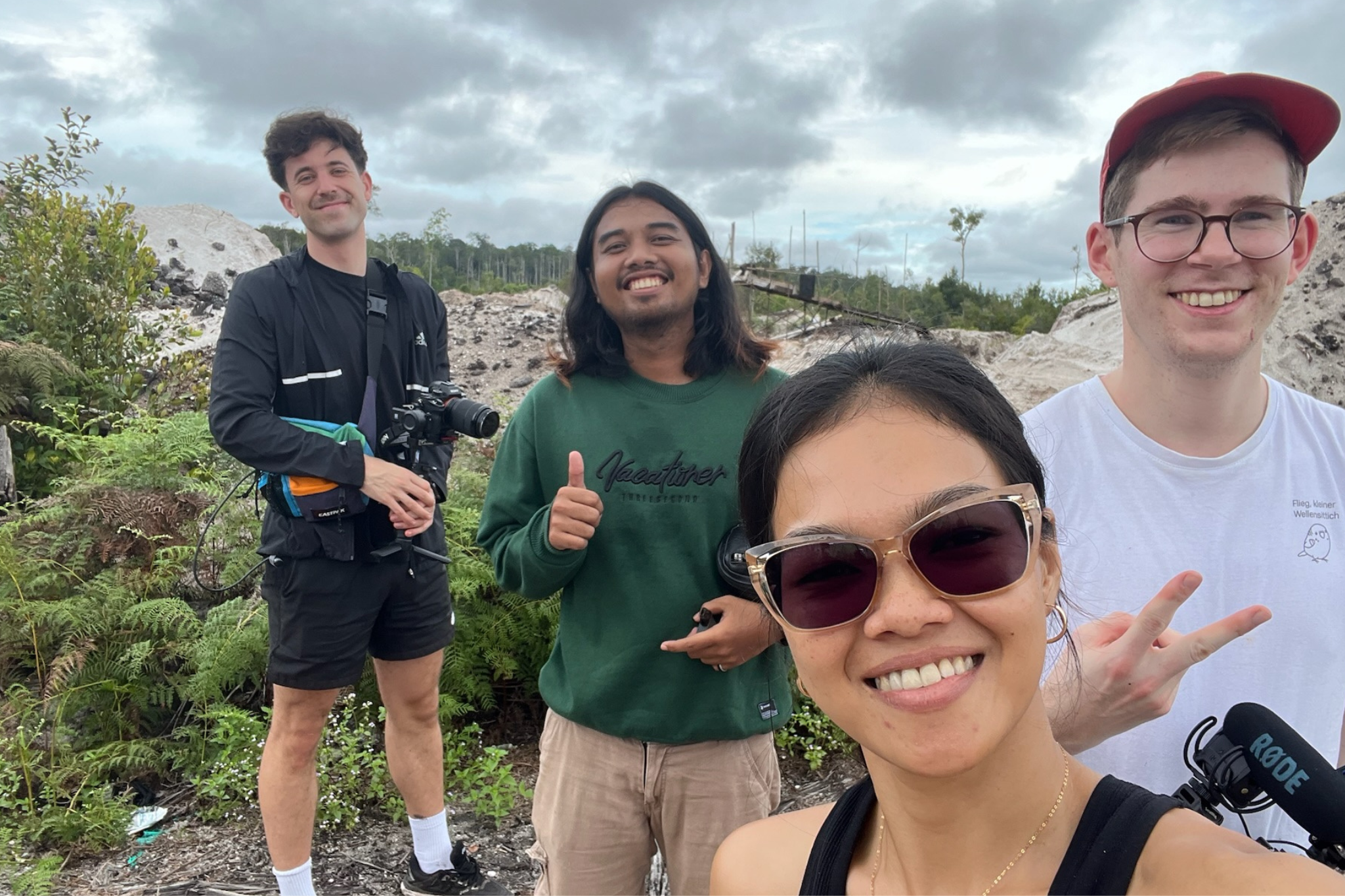The TOT activity lasted for 4 days, beginning with a workshop on patchouli cultivation modules and curriculum. Participants then received material on basic cultivation techniques, analysis, and community-based patchouli business strategies. Participants also engaged in practical cultivation activities, including seedling production, planting, fertilization, and harvesting at the patchouli nursery site. During this period, participants also learned about patchouli oil production at the GFI patchouli distillation site in Sumur Mas Village. The TOT program concluded with an evaluation and finalization of the modules, which will be used for the Farmer Field School in Central Kalimantan.
When delivering the material, Syaifullah emphasized to participants the importance of conducting a land suitability survey in Central Kalimantan. This is because the land conditions and temperatures in Aceh and Central Kalimantan differ, which will impact the patchouli cultivation process. Additionally, he suggested developing training programs that encourage changes among farmers.
“Make sure to create training programs that are interesting for farmers. Don’t just focus on physical development, but also non-physical development. Motivate farmers that planting patchouli will bring economic and environmental benefits with the concept of zero waste, where not only the oil is used, but the leaves left over from distillation can also be used as compost to restore soil nutrients,” said the professor from Aceh.
